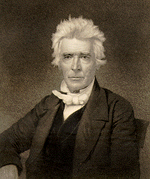A couple of weeks ago, I was batting back and forth with an informed Unitarian Universalist friend about our polity, when at one point he zeroed in at the settled clergy vote at General Assembly, at which point I had to stand up for the Universalist contribution to our polity.
This is my side of the discussion, which I admit was a bit of a monologue at that point. I don’t have his permission to share his side, but if commenters want to continue the conversation, I would consider it an honor.
I was wondering what the future holds…
With the one-way push to regions, will there be an opening for devolution of connection authority? — congregational membership, mission planning, ministerial fellowship [at the regional level] — now that there aren’t 19-22 districts.
[After all,] There’s a lot more embedded Universalism in our system than we sometimes credit.
[And then the push about General Assembly votes.]
It’s about fellowship, not credentials per se. Makes more sense in the Universalist sense if the other piece was still in place.
That is, the fellowship of the parishes.
That’s because, from a Universalist frame, the UUA acts (imperfectly) as a national church, something the Unitarians would never have.
[My friend opined that this result is sub-optimal.]
[Today’s system is]neither-nor.
The names tell you all. The American Unitarian Association and the Universalist Church of America.
And why scant resources went to build a Universalist National Memorial Church, but the Unitarians never did.
To finish my thought, the churches were (supposed) to have a parallel relationship to their conventions that the ministers did, supervised by the same committee.
And both ministers and lay persons served on them. Not that I’m all rah-rah retro Universalist.
The half-time service requirement for fellowship renewals — a thorn in my side — is a re-write of a pre-consolidation Universalist rule.


